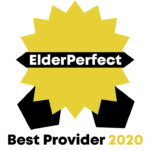What Is It?
According to the Centers for Disease Control and Prevention (CDC) reports, one out of every five adults has a doctor-diag nosed arthritis condition, with osteoarthritis (OA) as the most common form of arthritis. Also known as degenerative joint disease (DJD), it affects the hands, lower back and weight-bearing joints like the hip, knee and ankle. Symptoms can be mild to severe with associated bone and joint deformities.
Those with other chronic conditions such as heart disease or diabetes are more likely to develop arthritis.
How We Treat It
At Salude, we know being active is the one key to reducing the limitations from arthritis. It’s recommended that those living with arthritis get a minimum of 150 minutes of moderate activity each week, which can be done in small increments (10 minutes at a time). This may be easy to say, but how do you keep active when your hands are painful with rheumatoid arthritis, or your feet and ankles are showing deformities related to osteoarthritis, with each step more painful than the previous? Salude can help.
We partner with Aegis Therapies, and our skilled therapists work with your physicians to treat the limitations caused by your arthritis. Should you present swelling and pain of arthritic joints, our therapists and assistants are ready to help. They are armed with evidence-based interventions which reduce swelling and decrease pain, guide you in energy conservation and joint protection techniques, and instruct in the use of walking aids and adaptive equipment to ease everyday tasks such as bathing and dressing.
What You Can Expect
Our therapy team will work to get you up and moving again should osteoarthritis cause the need for a total knee or hip replacement. In fact, by working with Aegis Therapies, we are leading ways to move you through post-acute care recovery after an orthopedic procedure. Recovery after a total joint replacement requires the assessment of your safety in mobility with walking aids, balance to prevent falls, strengthening, and range of motion to restore joint function and ADL retraining. As your balance and recovery progresses, you will be advanced to higher level tasks resuming many of your former hobbies and recreational activities.




